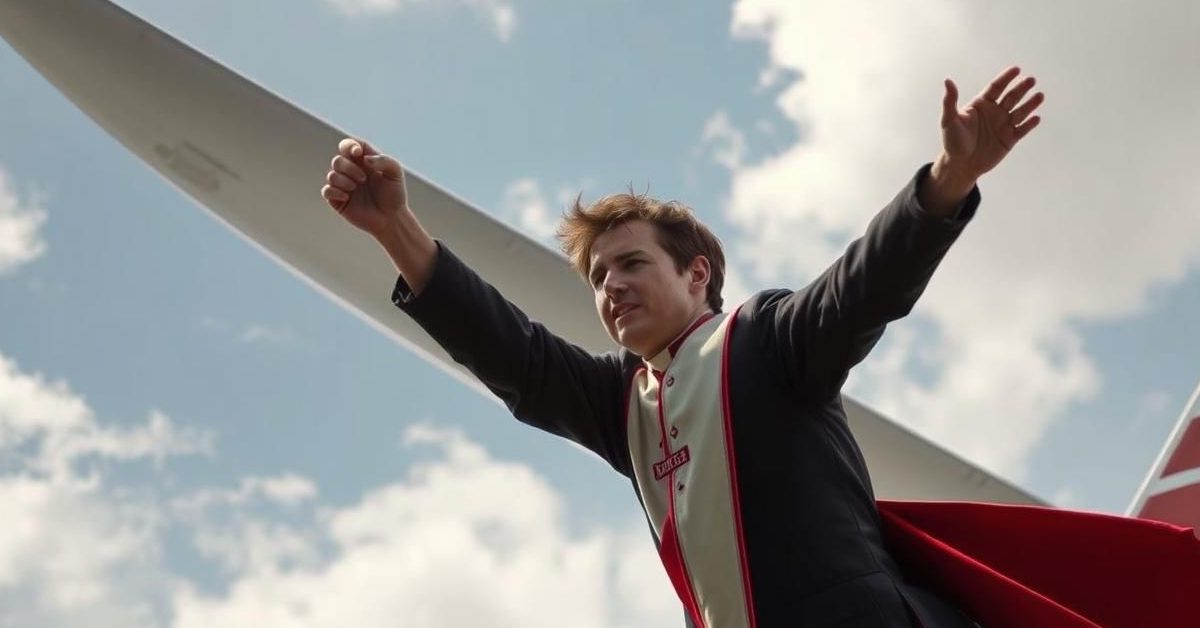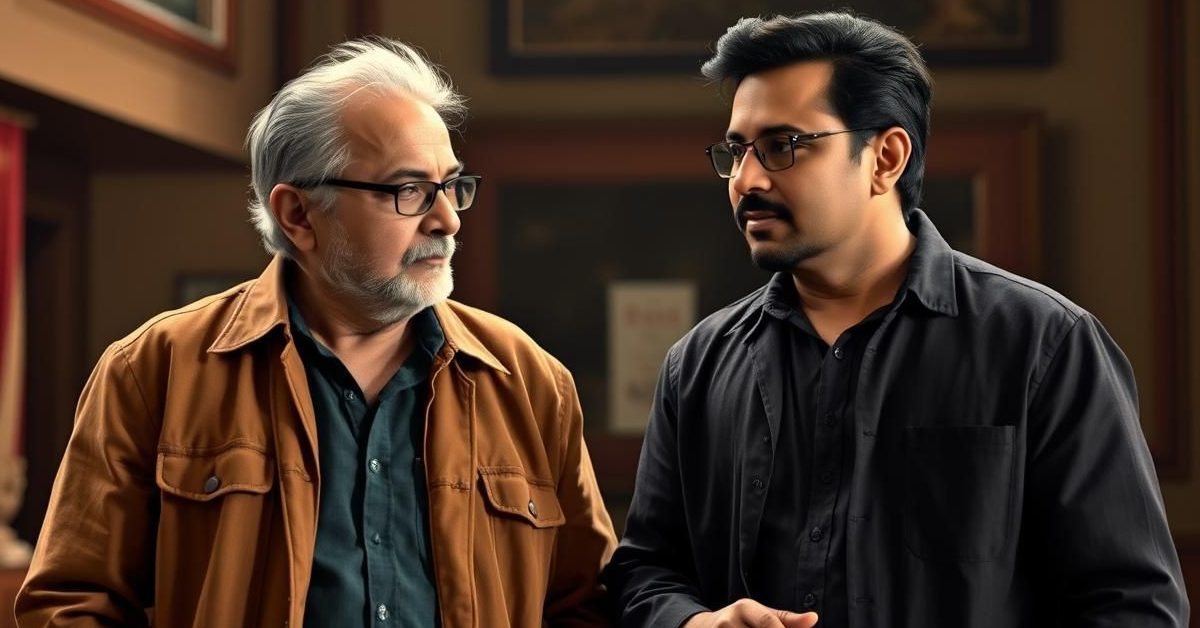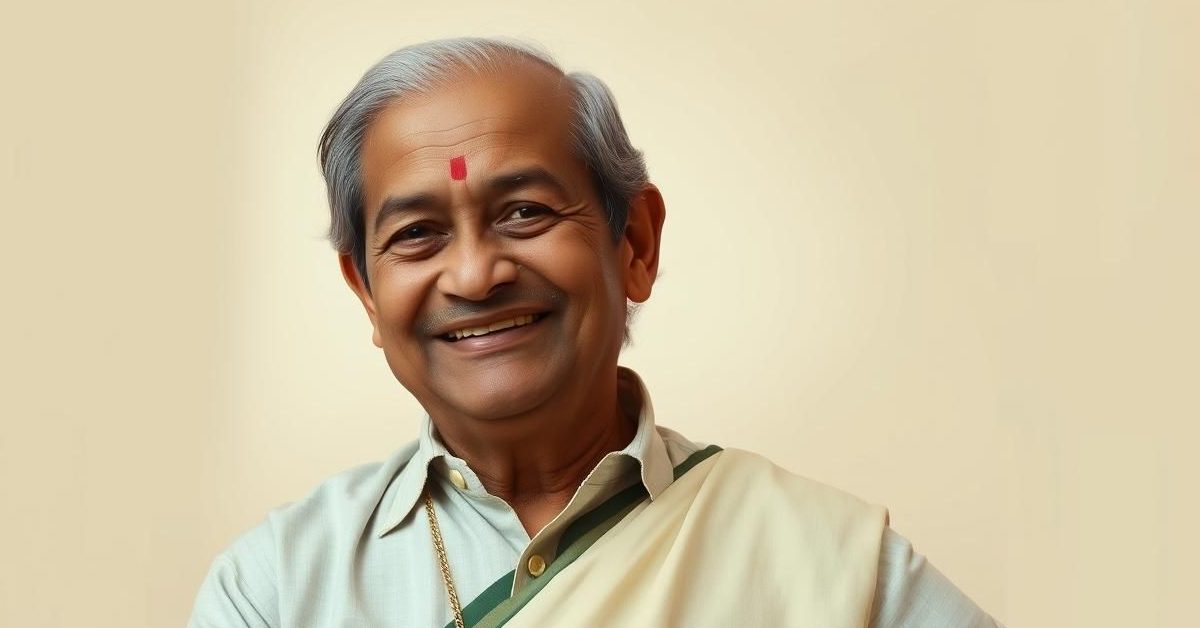F1: Beyond the Roaring Engines, a Story of Legacy and Redemption
Almost four decades ago, the visionary director Tony Scott, alongside star Tom Cruise and producer Jerry Bruckheimer, attempted to recapture the electrifying cultural impact of Top Gun with Days of Thunder. That racing drama followed a remarkably similar structural blueprint, merely swapping out fighter jets for high-octane cars. Fast forward to today, and Bruckheimer, now partnered with acclaimed director Joseph Kosinski, is essentially revisiting this successful formula. Following the triumph of Top Gun: Maverick, they deliver F1 to audiences. Yet, a crucial distinction emerges: Tom Cruise, the undisputed icon of adrenaline-fueled blockbusters, is notably absent from this latest sports drama. Perhaps his intense commitment to the ever-expanding Mission: Impossible franchise kept him occupied. However, this absence proved to be serendipitous, for few could have embodied the complex, weathered spirit of Sonny Hayes quite like Brad Pitt.
Brad Pitt’s Unrivaled Aura: A Masterclass in Relatable Drifting
It might seem a peculiar observation, given that Tom Cruise famously portrayed one of fiction’s most recognizable drifters, Jack Reacher, not once but twice. Yet, many felt he was fundamentally miscast in those roles. The issue wasn’t merely a physical mismatch with Lee Child’s towering character description. Rather, as an actor, Cruise struggles to project the inherently “go-with-the-flow” energy essential for such a persona. His screen presence is simply too intense, his public image too meticulously curated, too precise to convincingly embody a character living on the fringes. The enduring joke about him being an alien Scientologist sent to observe humanity, though facetious, speaks to this carefully constructed persona. Brad Pitt, in stark contrast, possesses the exact opposite screen presence: he is relaxed, effortlessly relatable, and carries a wonderfully untethered quality.
Consider the stark difference: one could scarcely imagine Tom Cruise exceeding his prescribed sip limit at a glittering Vanity Fair Oscars afterparty. Yet, picturing Brad Pitt “drinking a Russian under the table with his own vodka” feels entirely plausible. This very essence of “messiness” is pivotal to his character in F1. Sonny Hayes isn’t a has-been; he’s more profoundly, a “never-was.” Once a prodigious talent, he raced alongside legends like Ayrton Senna, Michael Schumacher, and Alain Prost. Now, in what we can assume are his late fifties (Pitt himself is 61), he operates as a racer-for-hire, scraping together meagre earnings, relentlessly chasing a visceral rush that has eluded him for decades. His past is littered with failed relationships, and he’s navigated personal battles with addiction. Crucially, he isn’t in it for the money; his drive is far more profound.
The Call to Arms: APXGP and the Burden of Redemption
Sonny Hayes often finds himself seeking solace, living out of his van, his thoughts drowned by the immersive sound of Apple AirPods Max™. It’s here that his old friend Ruben, masterfully portrayed by Javier Bardem, re-enters his life. Ruben pulls Sonny from his self-imposed obscurity, passionately pleading with him to salvage his rapidly imploding Formula One team, APXGP. Half the season has already passed, and the team’s board threatens to sell if a dramatic turnaround isn’t imminent. In Ruben’s eyes, Sonny is the only man who can prevent this catastrophe. Desperate situations, after all, demand unconventional solutions. Ruben’s unwavering faith in his old friend is palpable; in many of their shared scenes, Bardem’s conviction makes it seem as though he’s on the verge of declaring Sonny the “Lisan al-Gaib.” Brad Pitt infuses Sonny with a genuine purity of soul that makes him instantly endearing. Yet, in a film as meticulously crafted as F1, even the character’s perceived flaws are rendered with an artisanal precision, fitting neatly into the narrative.
Generational Shifts: Mentorship in the Fast Lane
Despite his propensity for disrupting team strategies, disregarding orders, and increasingly relying on a philosophy of “chaos” and “combat,” Sonny Hayes paradoxically steers F1 towards a surprisingly predictable emotional trajectory. Much of the film’s core tension arises from his complex relationship with his partner, the promising but brash rookie Joshua Pearce, played by Damson Idris. Perhaps because the film, much like Maverick, opts against a conventional antagonist, it instead draws its dramatic power from this personal conflict. Joshua is arrogant, eager to ascend the ranks, and fiercely independent. Yet, despite Sonny himself being a quintessential lone ranger—in many ways, an archetypal Western hero—he gradually instills in Joshua a profound sense of team spirit.
A significant generational chasm separates these two drivers, yet it becomes undeniably clear that Joshua’s evolution, both as a driver and a person, is impossible without Sonny’s guidance. Indeed, Joshua’s promising career might have careened off track entirely had Sonny not intervened and nudged him back into alignment. And much like Maverick served as a compelling metaphor for the shifting landscape of the movie industry, F1 echoes this sentiment. Both films deeply believe that the era of unchallenged individual stardom might be drawing to a close. It’s reminiscent of the poignant scene at the end of Pathaan, where Bollywood titans Shah Rukh Khan and Salman Khan reflect on their perceived burden to save the film business from a new generation of self-centered stars. However, a critical difference emerges: while Pathaan embraced a protective, “cannot leave it to the kids” stance, F1 subtly suggests that true, lasting progress can only be achieved when the older generation gracefully makes way for the new, guiding them rather than hoarding the spotlight.
The Shifting Sands of Stardom: A Hollywood Conundrum
Maverick presented Tom Cruise as the very embodiment of cinematic power, a force of nature. F1, conversely, feels like the kind of movie conceived in anticipation of a potential public cancellation. Cruise himself has weathered several such storms, often seeming perpetually on the verge of a eccentricity kooky enough to turn public sentiment against him. He has been excused for his occasional public missteps and unconventional beliefs solely because audiences have meticulously weighed the pros against the cons, ultimately deciding that life is simply too short to deny themselves the pure visceral pleasure of watching him perform death-defying stunts, like dangling from a biplane. Brad Pitt, on the other hand, has lived a decidedly messy life; there is little left for him to hide. It’s a telling detail that in both films, their respective characters are portrayed without children, perhaps hinting at a singular, all-consuming dedication to their craft or passion.
Unlike Cruise, who has delivered a seminal blockbuster in every decade of his illustrious career, Pitt has never been a consistent commercial crowd-puller. He has, however, always been an undeniable movie star. Just as Bollywood grapples with anointing worthy successors to its iconic Khans, Hollywood faces its own existential crisis regarding star power. The outspoken Quentin Tarantino famously (and provocatively) asserted that actors headlining Marvel movies aren’t “real” stars, a group that includes names like Chris Hemsworth, Chris Evans, and Chris Pratt. Even Robert Downey Jr.’s first major post-Marvel project, Dolittle, stumbled despite his considerable presence, underscoring this shift.
Tarantino went so far as to deny George Clooney a spot on his exclusive list, pointedly suggesting that Clooney had never single-handedly propelled a blockbuster purely on the strength of his name. Clooney, understandably “irritated” by Tarantino’s implicit dismissal of his extensive career, nevertheless conceded the industry’s struggle to cultivate stars as it once did. He told GQ, “We were at the very end of that, where you could work at a studio and do three or four films, and there was some plan to it. And I don’t think that’s necessarily the case anymore. So it’s harder for you to sell somebody something on the back of a star.”
Paying it Forward: The True Measure of Cinematic Legacy
One could argue that F1 possesses inherent marketing appeal; the sport itself boasts a massive global following and has produced numerous icons. Yet, there’s no denying that the film would lack its profound emotional anchor without Brad Pitt’s deeply weathered, resonant performance. Similarly, Inception would be a lesser film without Leonardo DiCaprio’s haunted, complex portrayal; Armageddon would diminish without Ben Affleck’s youthful exuberance counterbalancing Bruce Willis’s weariness. Only Denzel Washington could elevate a grim gangster drama to a global box office triumph of over $200 million. At the same time, it’s imperative to acknowledge the mentorship exemplified by these very stars: Tom Cruise famously took Glen Powell under his wing; Leonardo DiCaprio maintains a renowned posse of rising talent; Ben Affleck and his longtime collaborator Matt Damon are actively empowering a new generation of filmmakers. And Denzel Washington, bless him, was the first to financially support Chadwick Boseman’s journey to becoming a director. An isolationist approach rarely yields lasting success. True legacy comes from paying it forward, nurturing new talent rather than pulling away. It means giving back instead of simply gloating about one’s own accomplishments. If you truly believe that “you can’t leave it to the kids,” then the responsibility falls on you to teach them.









